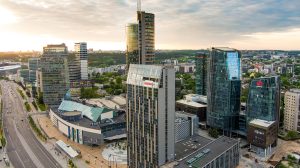Armenians in the country’s capital Yerevan and other large cities have been protesting parliament’s decision to elect former president Serzh Sarkisian (pictured above) as prime minister. Only 17 MPs – from a total of 105 – voted against the election of Mr Sarkasian.
Protests in Yerevan began on April 13. Demonstrators carried the Armenian flag and chanted “Armenia without Serzh.” Despite the government warning protestors that it would quell the demonstrations, and sporadic clashes with police in which some people were hurt, whole streets continued to be blocked by throngs of angry Armenians on April 17. Protests also continued in other cities, including Gyumri and Vandzor.
The leader of the protests is Nikol Pashinian, an opposition MP whose Way Out movement wants Armenia to forge closer ties with the European Union, and who believes that the country’s decision to join the Russian-led Eurasian Economic Union was a mistake. He told reporters that a peaceful revolution is about to happen in Armenia.
“I declare today the launch of a velvet revolution,” he said. “This is a peaceful, people’s revolution. Demonstrators are blocking streets and avenues in cities across Armenia. People are not going to go to work, and mass strikes have begun.”
International organisations, including Human Rights Watch (HRW), have said that the government should refrain from using force.
“Any response from the police should be proportionate and comply with UN standards. It is never too late for the Armenian police to abandon the disproportionate force of their traditional practices,” said HRW in a statement.
The pro-Russian Mr Sarkisian was first elected president in 2008 and served for two terms. Under the amendments made to the constitution following a referendum in 2015, the system of governance changed in Armenia, with more powers being handed to the prime minister, elected by parliament.
In 2014 Mr Sarkisian promised that he would did intend becoming prime minister if Armenia switched from a presidential to the parliamentary system.





Add Comment